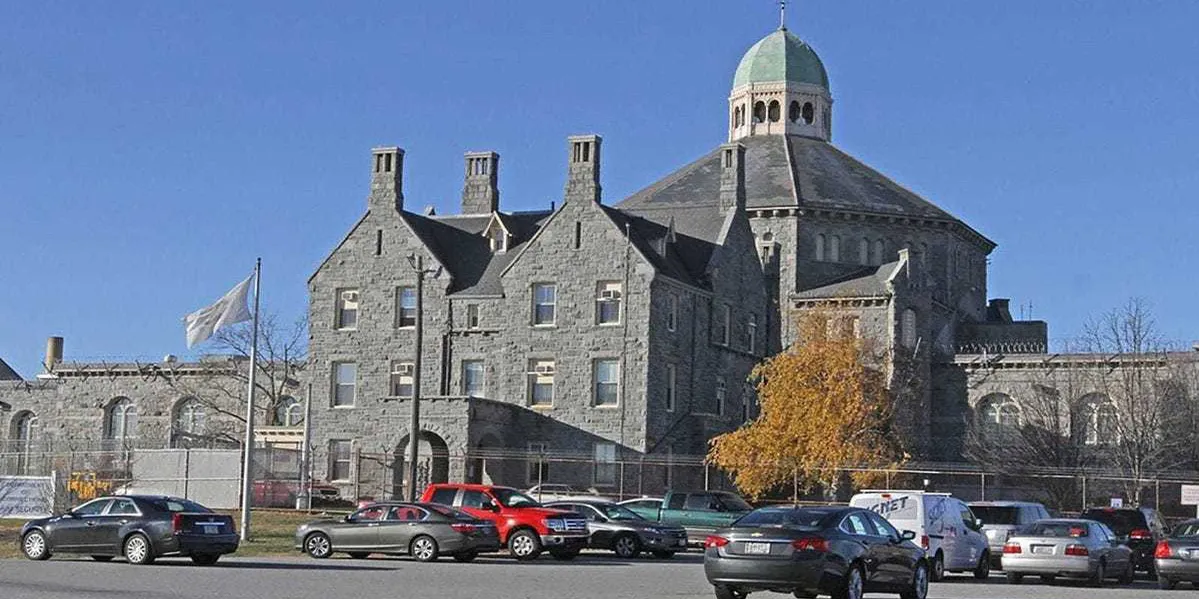
Can cycles of incarceration be broken? How one RI organization is trying
How did your country report this? Share your view in the comments.
Diverging Reports Breakdown
Can cycles of incarceration be broken? How one RI organization is trying
The Center for Health and Justice Transformation aims to improve health equity for those affected by the criminal justice system. CHJT has launched programs such as the Transitions Clinic and eliminated over $2.3 million in court debt for Rhode Islanders. One goal is to reduce medical recidivism – when people return to incarceration because their health or social needs weren’t met after release. Donors can make a meaningful difference by supporting initiatives like reentry services, debt-relief programs and education efforts, the organization says. The Providence Journal and United Way of Rhode Island have partnered to highlight the state’s nonprofits each week in a special edition of The Providence Sunday Journal, which is published on Sundays at 9 a.m. and 11 a. m. ET. For more information about the Center for health and justice Transformation, email Erika Paradis at Erika.Paradis@brownhealth.org.
CHJT measures success by reductions in medical recidivism and by fostering more supportive justice systems.
CHJT has launched programs such as the Transitions Clinic and eliminated over $2.3 million in court debt for Rhode Islanders.
The Providence Journal and United Way of Rhode Island have partnered to highlight the state’s nonprofits. Each week, a nonprofit identified by United Way will be spotlighted in the Providence Sunday Journal, and the United Way will share how it supports that organization.
This week, we feature Center for Health and Justice Transformation, which seeks “to eliminate health disparities and promote health equity through healthy behaviors, healthy relationships, and healthy environments.”
We asked its director, Justin Berk, to tell us more about the organization.
What is your mission and vision?
The Center for Health and Justice Transformation (CHJT), a project of the Brown University Health Community Health Institute, is dedicated to advancing health equity among those impacted by the criminal legal system. We envision a criminal legal system that centers equity, is less punitive and redefines public safety. Such a system decriminalizes mental illness, addiction and poverty, prepares individuals for reentry, and seeks to mitigate the collateral consequences of conviction and incarceration. We work across health care and justice systems to promote innovative, compassionate and evidence-based solutions that reduce stigma, improve health outcomes and break cycles of incarceration.
How do you measure success?
We look at success both for individuals and for the bigger systems we’re trying to change. One goal is to reduce medical recidivism – when people return to incarceration because their health or social needs weren’t met after release. On a broader level, we measure progress when all patients can access the health care services they need and when health care and justice institutions become less punitive, more supportive, and give more power and voice to people with lived experience.
What are your biggest challenges currently?
One of our biggest challenges is securing sustained funding to support this critical but often overlooked work. We also strive to overcome outdated narratives about punishment and safety that can resist evidence-based reforms. Balancing security concerns within institutions while advocating for patient-centered approaches requires ongoing dialogue and collaboration. Ultimately, supporting individual patients while simultaneously trying to improve the larger systems that impact them remains a core, ongoing focus as well as a tension in this field.
How can volunteers or donors get involved?
The Center for Health and Justice welcomes community support through donations, which directly fund programs and research that assist individuals returning from incarceration and help build a more equitable criminal legal system. Donors can make a meaningful difference by supporting initiatives like reentry services, debt-relief programs and education efforts. To learn more about donating or supporting CHJT’s mission, please visit healthandjustice.org or contact us at healthandjustice@brownhealth.org.
What are some recent accomplishments or projects you’re proud of?
We are proud of many of CHJT’s past initiatives. In the past few years, CHJT helped launch the Transitions Clinic, a medical home for people returning from incarceration. The Center for Health and Justice worked to eliminate more than $2.3 million in court debt for indigent Rhode Islanders, helping them rebuild their lives and ultimately reformed state policy to reduce barriers for debt expungement. We regularly conduct powerful Reentry Simulations and host frequent learning sessions that educate community members and policymakers about the challenges of reentry. We run an AmeriCorps Vista program to build statewide capacity in health and justice, and support a coalition of reentry organizations through Rhode Island Rentry Alliance (RIRA). In 2025, we’ve initiated new Medical Discharge Planning Services to support individuals’ health and stability as they leave incarceration. We’re proud of this work and excited to keep building alongside our community partners.
For more information about the Center for Health and Justice Transformation, email Erika Paradis at EParadis@brownhealth.org.
